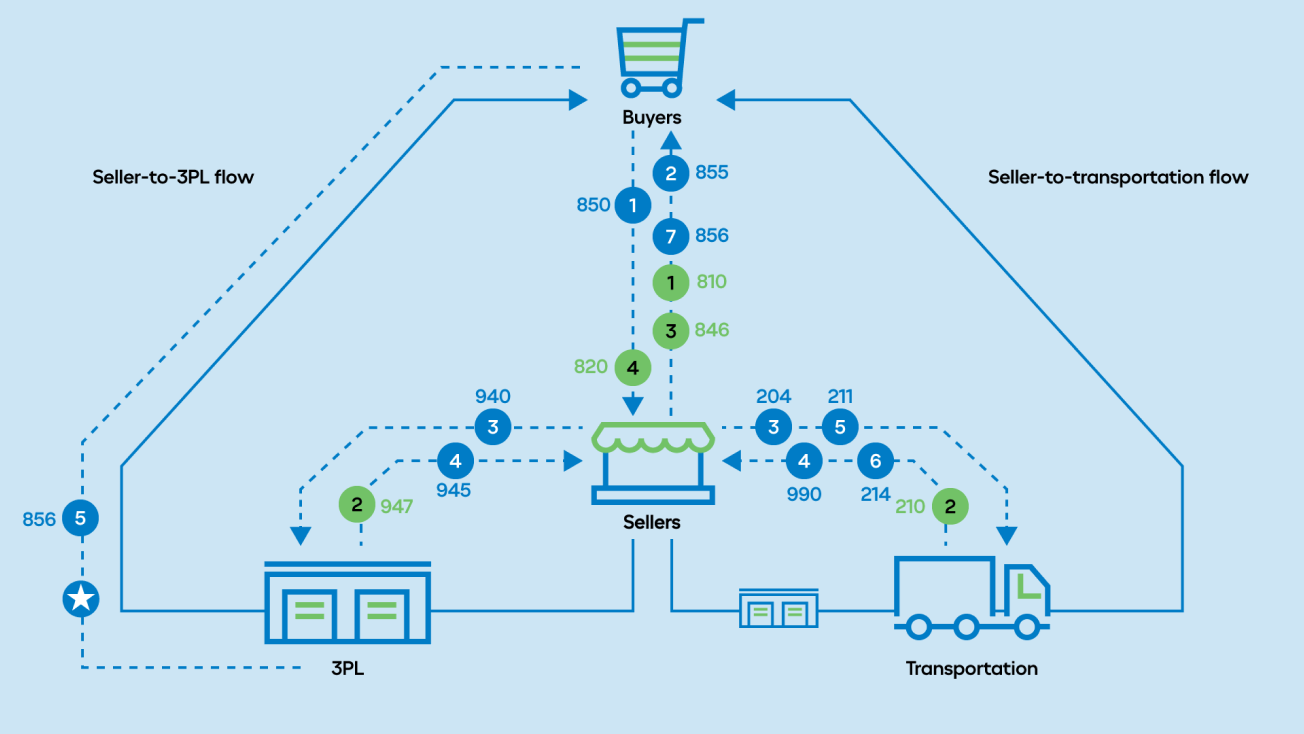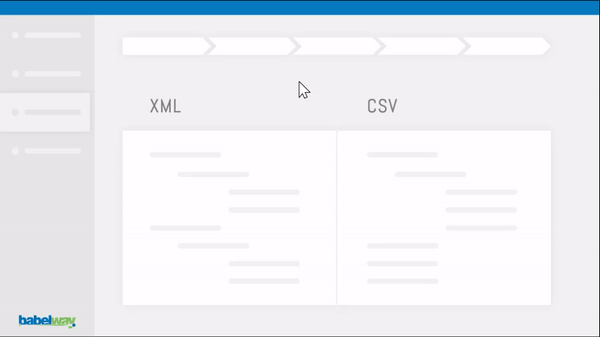Logistics EDI
Learning Hub
Electronic data interchange or EDI is a way to electronically share business documents — like invoices and shipping notifications — with your customers or partners.
Rather than enter data manually, EDI lets you transmit data from system to system. You’re able to increase operational efficiency … while avoiding hand cramps.
Over the years, EDI communication standards were developed to help systems speak the same language. There are a bunch of standards and file formats systems can use today. So if your system is fluent in more than one … that’s a good thing.
EDI technology has been around forever. But it wasn’t always widely used. With the Internet, that’s changed. Today, more than $2.5 trillion dollars in transactions are conducted annually through EDI.
Maybe it’s time you got in on the action. If you’re interested in learning how Babelway can boost your company’s efficiency with EDI, we’re just a click away!
How does Logistics EDI work?
EDI allows you to electronically exchange business documents — like POs and shipping notifications — with your customers and partners.
So how can EDI work for your logistics company? Here are 3 ways…
#1 Meet Customer Expectations
Thanks to companies like Amazon, expectations around speed and transparency are higher than ever. EDI helps give your customers the shipping information they want, when they want it.
#2 Automate Business
When transactions occur, EDI handles the work of getting data into your system… automatically. It’s like telling your kids to clean their rooms – once. And they do it everyday. without ever being told again (that would be nice…)
#3 Get a Return on Tech
EDI helps you get the full value from your transportation management or warehouse management system.
With it, you can pull long lists of goods from your warehouse more accurately or get a truck en route to pick up its next load faster.
How do I become EDI compliant?
EDI compliance in logistics is about ensuring your company can meet the file format and transfer protocol requirements of a customer or partner in electronic data interchange (EDI).
File format
In the United States, the most common EDI file format in logistics is X12. Yet, format flexibility doesn’t hurt. Some trading partners prefer formats like XML, CSV, Flat File, or even something else.
Transfer protocol
Next, you’ll also need the ability to exchange logistics EDI files with your trading partner. This transfer method is the technology used to electronically send and receive data. Transportation and warehouse management systems support FTP, VAN, SFTP, AS2, HTTP, and API. These are generally the most popular transfer protocols.
Commonly Used EDI Transaction Codes in Logistics

Key
Before goods are delivered
After goods are delivered
Some 3PLs offer advance ship notices (856) directly to buyers if the buyer’s contact data is passed to them through a warehouse shipping order (940).
EDI using Babelway
So what makes Babelway different from other EDI providers? In a word, control. See how far you can go on your own.
- Visual field mapping
Cut EDI on-boarding time in half with point-and-click, drag-and-drop building tools - Validation rules manager Avoid unnecessary errors by customizing business rules to meet your requirements
- Connection tester Validate partner connections in minutes before pushing them live
- Real time alerts Know immediately when message errors occur and how to fix them

